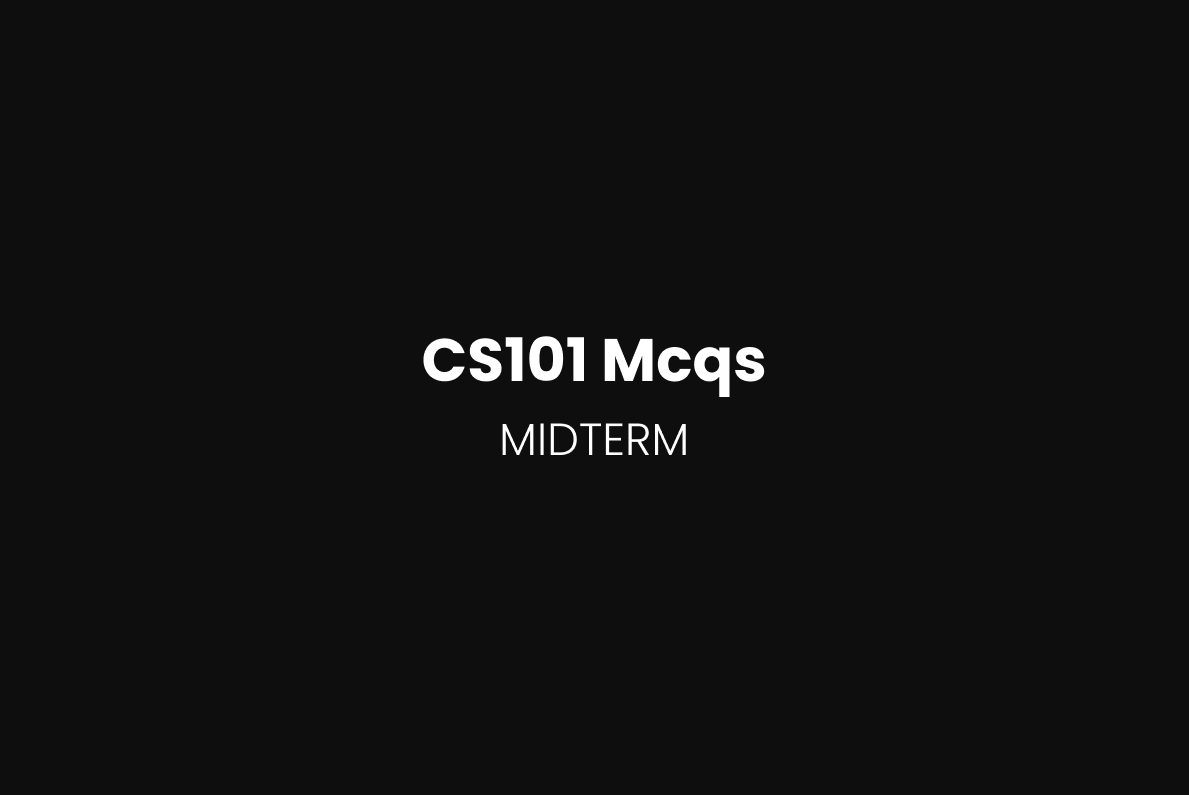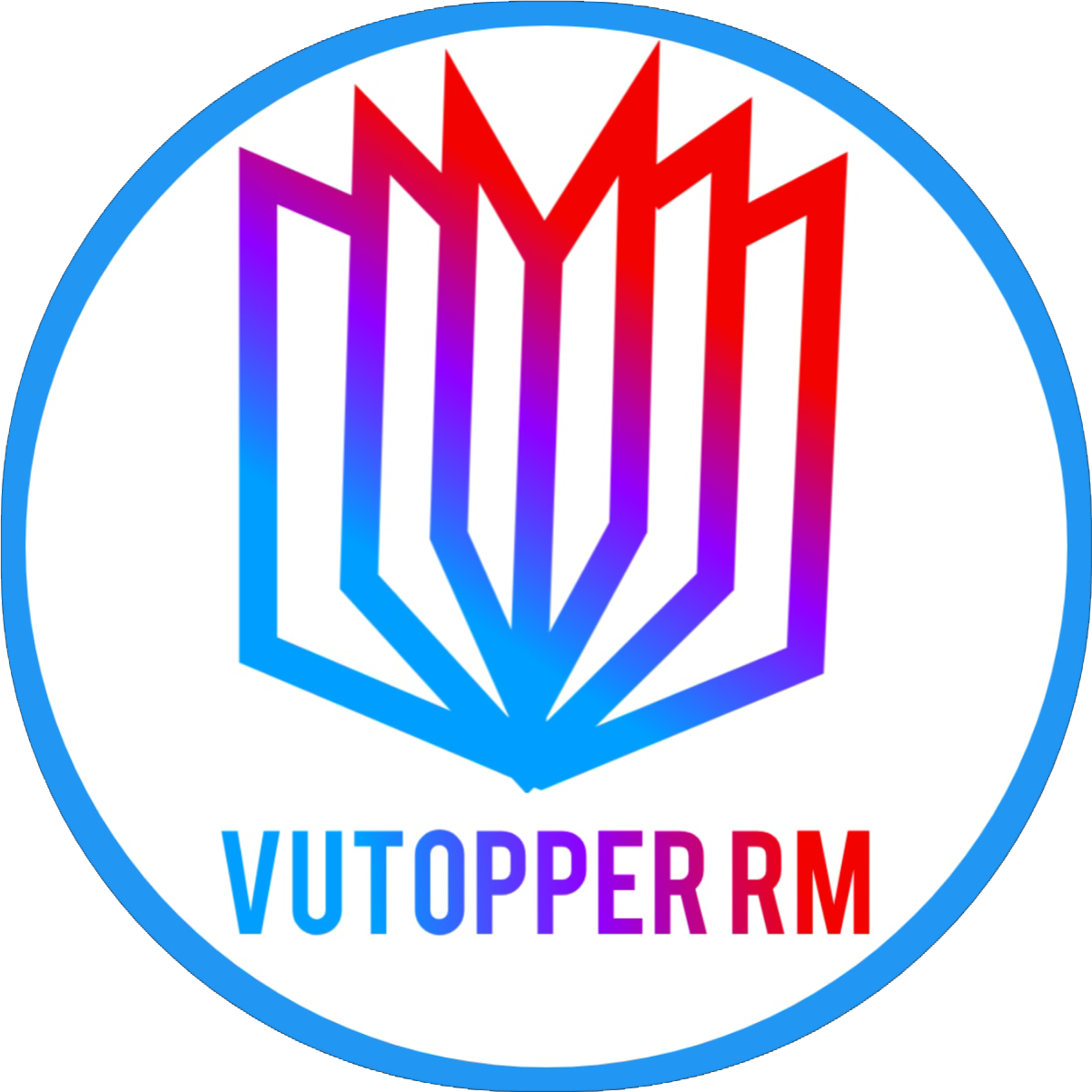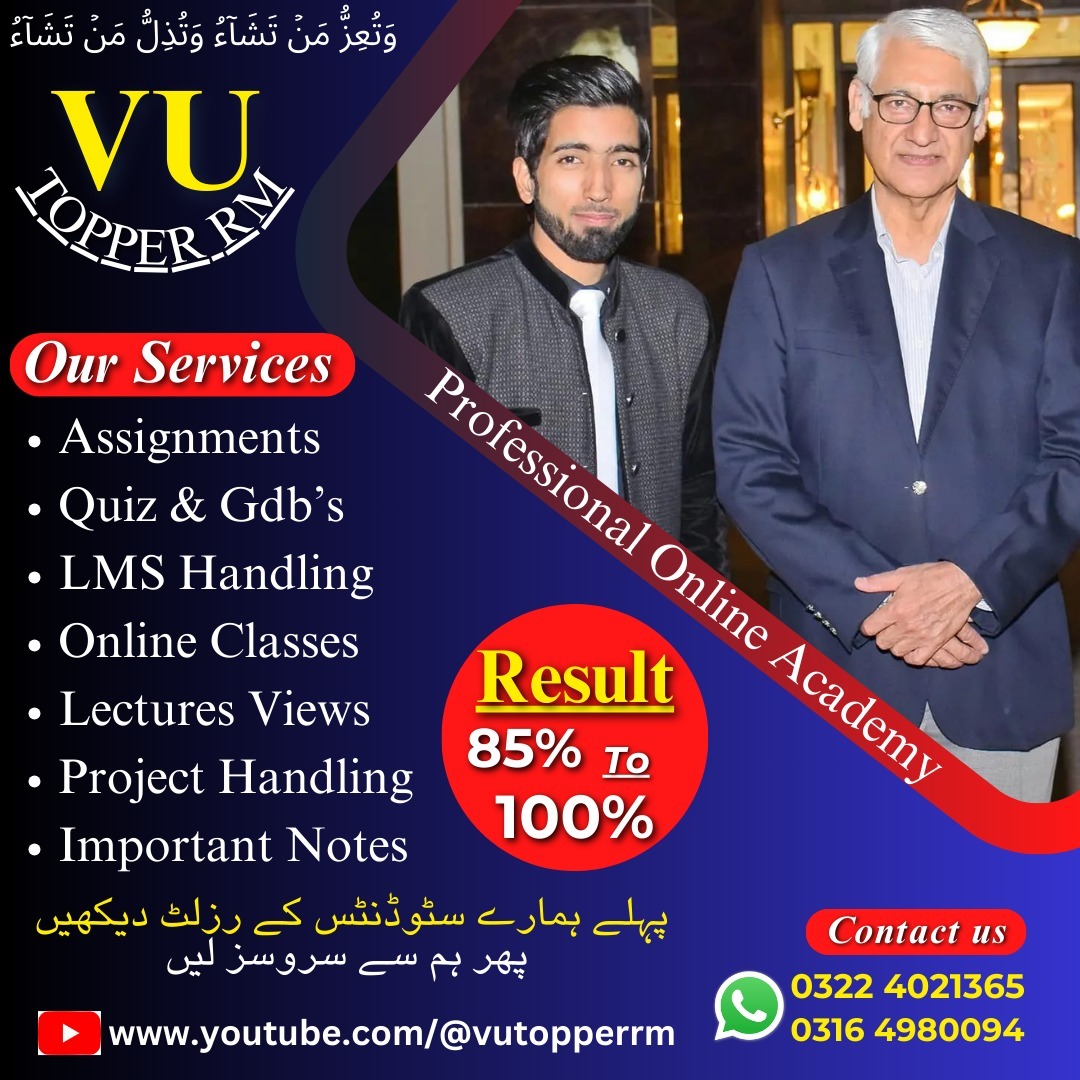
These notes are a collection of multiple-choice questions (MCQs) for the CS101 Midterm exam, compiled by “VU Topper RM.” The questions cover various essential concepts of computer science, programming, and the basics of computing. Here’s an overview of the major topics discussed:
Basic Computer Terminology:
- Questions on common terms like World Wide Web (WWW), bit (the smallest data unit), byte, and Compact Disc (CD).
- Understanding computer fundamentals such as memory (RAM, registers), storage devices (Hard Disk, SSD), and components like CPU and BUS.
HTML and Web Development:
- Basic tags such as
<p>used in HTML for writing paragraphs. - Concepts around Active Server Pages (ASP), Java Server Pages (JSP), and CGI (Common Gateway Interface) are briefly mentioned, along with web protocols like HTTP and FTP.
- Basic tags such as
Programming and Algorithms:
- Simple programming terms like loops, conditions, and functions.
- Important algorithmic concepts like binary search, pseudocode, and recursive functions.
- Topics like 2’s complement notation, binary representation, and number systems (hexadecimal, binary) are also included.
Networking and Internet:
- Protocols like TCP/IP, POP3, SMTP, and VoIP.
- Network components such as routers, repeaters, and bridges, and an understanding of LAN and wireless networks.
- Topics like firewalls, grid computing, and cloud computing are briefly introduced.
Data Structures:
- Questions on data types, bit patterns, and memory-related topics like memory cells and address.
- Concepts related to stacks, queues, and arrays, emphasizing how they store data and how they function within algorithms.
Computer Hardware and Software:
- The difference between system software (e.g., operating systems) and application software (e.g., Microsoft Word, Excel).
- Basic hardware components such as processors, RAM, and storage devices.
- Questions related to file formats (e.g., TIFF, MP3), input/output devices, and audio/video compression (e.g., MPEG, MP3).
Encryption and Security:
- Basic concepts of cryptography, including public and private keys.
- Importance of encryption for data security and the role of digital certificates in authentication.
Operating Systems and Processes:
- Understanding process management, multitasking, and process states.
- The difference between multithreading, multi-user, and multiprocessing systems.
- Topics like memory management, machine cycles, and file handling in operating systems.
Miscellaneous Concepts:
- History of computing and notable contributions (e.g., ENIAC).
- Concepts related to graphical user interfaces (GUIs) and RGB encoding for storing images.
- Other topics such as spam filtering, MIDI, Unicode, and ASCII codes.
In summary, these notes provide a solid foundation for students preparing for the CS101 Midterm, covering diverse areas such as basic computing, programming, web development, networking, data structures, hardware, and software concepts. They are designed to offer quick practice for understanding the essential topics in computer science.


Leave a Reply